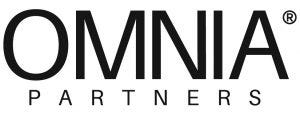
Omnia Partners
Public buyers have several options to keep problem materials out of the waste streamPublic buyers have several options to keep problem materials out of the waste stream
September 21, 2023

Cities and counties are taking multiple steps towards sustainability, says Curran Hughes, co-founder and president of Renegade Plastics, a fabric product manufacturer that offers an alternative to PVC (polyvinyl chloride)-coated fabrics. Its low carbon coated fabrics curtail plastic waste and reduce greenhouse gas emissions, according to the company.
“Local governments are doing a nice job of focusing on reducing individual impacts and incentivizing their citizens to practice responsible material resource use like reducing household plastic waste and pollution. We’ve also noticed more cities and counties are offering accessible education programs on sustainability and green living to promote environmental change,” Hughes tells Co-op Solutions. He adds that government agencies are investing in a growing number of comprehensive and effective recycling and composting programs in 2023.
Hughes urges local government officials to go further into sustainability and aim for macro-level changes. One example would be for leaders to work to eliminate PVC materials from their school systems. “While governments are doing a great job educating their citizens to be more sustainable, it’s just as important to model eco-conscious behaviors at the city and county level for citizens to follow.”
Hughes advises government leaders to establish procurement guidelines that avoid the Problematic and Unnecessary Materials as defined by the U.S. Plastics Pact. These problematic items can include plastic packaging products, components or materials where consumption could be avoided through elimination, reuse or replacement. The U.S. Plastics Pact organization says these items include products that, “post-consumption, commonly do not enter the recycling and/or composting systems, or where they do, are detrimental to the recycling or composting system due to their format, composition or size.”
“This is a very quick way to eliminate single-use plastics that can be quickly replaced by more sustainable options and to avoid problematic plastics like PVC, which is made from vinyl chloride and is a known health hazard as defined by the Centers for Disease Control and Prevention and The National Institutes of Health,” Hughes says.
Regarding plastic sustainability, Hughes says it is important that cities and counties mandate more sustainable procurement for both themselves and their contractors. “This will reduce the amount of toxic and/or polluting plastics present in those communities. In many cases, procurement guidelines were established decades ago and have not yet been updated in consideration of recent findings about the impacts of per- and polyfluoroalkyl substances (PFAS)—also known as ‘forever chemicals’ and microplastic pollution on the environment.”
Hughes says changes like those cited above are easier to implement than most local governments think. “There are pledge programs, like the U.S. Plastics Pact, that have guidelines and toolkits for cities, counties and companies to improve their plastic sustainability.”
Renegade fabrics are recyclable. The firm’s technical coated textiles are waterproof and airtight; they provide a suitable woven fabric solution for civil and environmental engineering applications. Renegade’s fire-retardant technical textiles are suited for heavy-duty construction applications. They are used as tarps, barrier membranes and other purposes. The firm’s products can serve as tents or fabric structures because they emit no fumes but are durable, flexible, fire-retardant, lightweight, and easy to clean, transport and store. Industries that use the firm’s products include industrial, agriculture, sports equipment, automotive, construction, structures and billboards.
The company’s tarps or drop cloths can be used for public landscaping needs, construction and building, public works projects and leaf pickup. Use them to shelter and store furniture, outdoor equipment and materials; they can protect equipment from paint spray and other airborne materials.
Which product-solution should the city buy? Hughes offers the following cases: “One example is the procurement of erosion control tools like straw wattles (bundles) made from plastic fibers vs. natural fibers, where the plastic version can be a source of microplastic pollution, while the natural fiber version will naturally biodegrade over time. A second example is the use of PVC fabrics or thin polyethylene films for pond, reservoir and ditch liners.”
The bundle is often covered with exterior netting. Cities and counties use them for erosion management and controlling storm water run-off, particularly to keep roads safe and minimize the risk of flooding, as well as stabilizing shorelines and stream banks.
Hughes notes several shortcomings of conventional products, as well as worthy substitutes: “PVC fabrics often contain PFAS, heavy metals and other chemicals that can leach into the environment while polyethylene films can degrade quite quickly and become a source of microplastic pollution. Alternatives to these could include coated polypropylene fabrics, like those made by Renegade, which do not contain PFAS, BPA or heavy metals, but are also more durable than polyethylene films, thereby reducing microplastic pollution.”
OMNIA Partners offers a robust portfolio of cooperative contracts in the public procurement space. The firm lists dozens of cooperative contracts under the “sustainable” keyword.
Michael Keating is senior editor for American City & County. Contact him at [email protected].
.jpg?width=100&auto=webp&quality=80&disable=upscale)
.jpg?width=400&auto=webp&quality=80&disable=upscale)







